Raising the Next Generation: Asian American and Pacific Islander Parents and Caregivers
Asian American and Pacific Islander parents and caregivers report themes of optimism, independence, and self-determination.
Latino parents and caregivers see a hopeful future for their families and are determined to see their children get more opportunities to succeed in life than they did. But they also recognize that inequities can and have limited their families’ chances to thrive.
The vast majority of Latino parents and caregivers surveyed express optimism about the future of the country for their families. Creating a better future for their kids is important and they are doing what they can to realize it. Parents born outside the U.S. are more likely to express optimism than parents who are U.S. born.
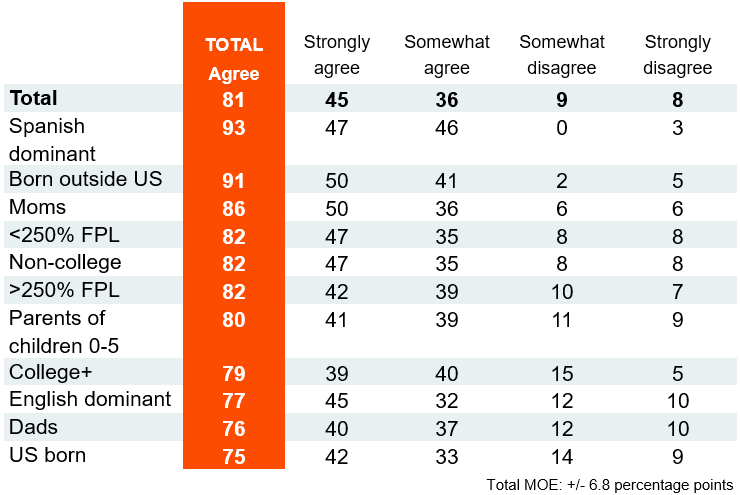
“They [immigrants] just want a better life for themselves and their family just like I do … I’m a citizen, but I’m still striving for that and that’s what they want.” Latino focus group participant, California
The overwhelming majority of Latino parents and caregivers say their children will have positive experiences, including more opportunity to succeed and thrive than they did.
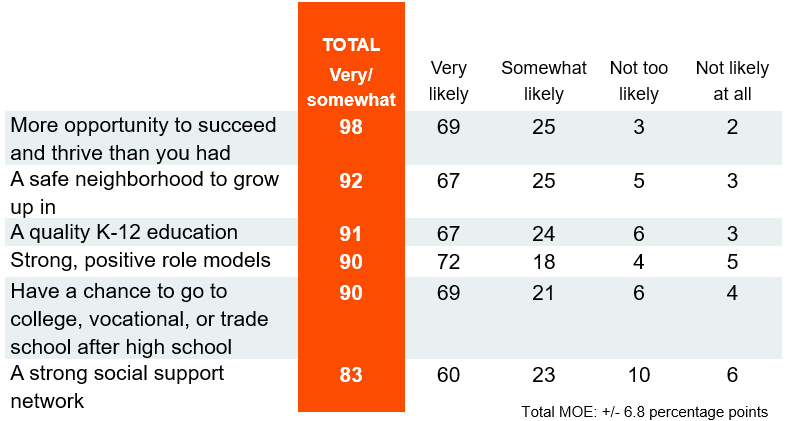
“I can only give a little, some other people can give more, but I think that the principles and education I have been able to give them, even though is not much, I think they are going in the right direction … I give them everything I have for them to succeed.” Latino interview participant, Texas
Latino parents also report relying on a strong
work ethic, creativity in solving problems, and a feeling that they have the
power to change their situation to help their family succeed.
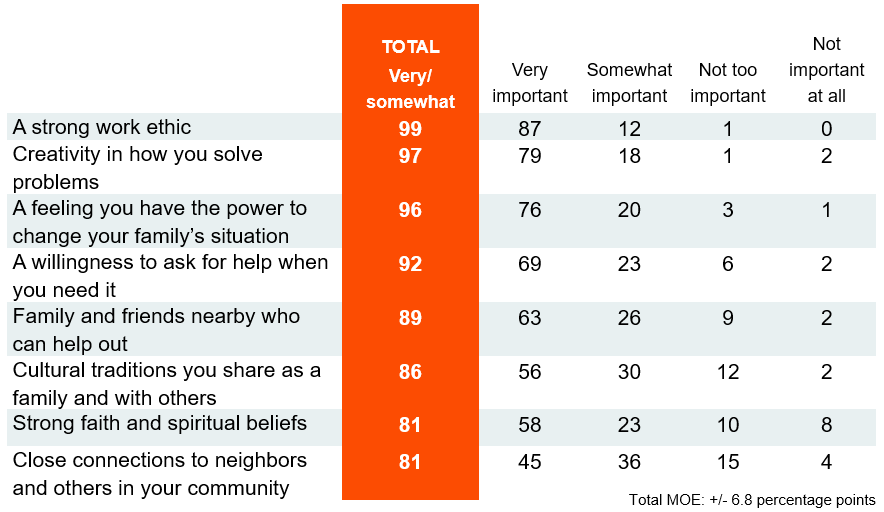
The optimism and hope expressed by Latino parents and caregivers lives alongside a recognition of inequities. Majorities report that despite everything they do to help their children succeed, they worry that America does not offer every child the same opportunities. This is especially true of moms and parents and caregivers with lower incomes.
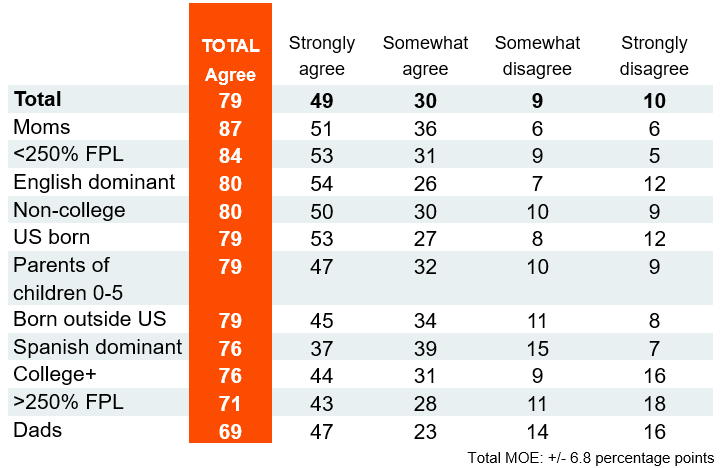
About half of Latino parents and caregivers are concerned that their children will experience racism and discrimination which will limit their opportunities. Spanish dominant parents and those with lower incomes are most concerned.
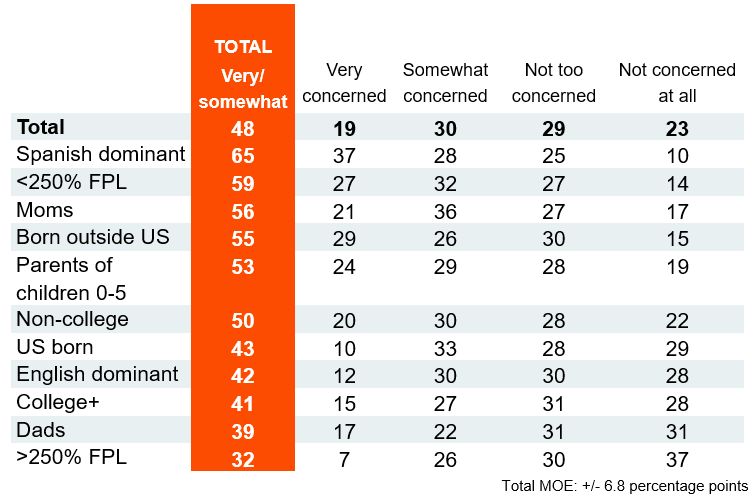
“When I think about racism, I think about my kids. When they grow up, I don’t want them to get insulted or to be guarding their backs for fear of what may happen to them because of their race.” Latino focus group participant, Texas
About half of Latino parents and caregivers share that racism or discrimination has limited their own opportunities in life. Three-quarters of Latino parents and caregivers say that systemic racism and discrimination can make it harder for someone like them to get a good paying job or get good medical care. Parents and caregivers with lower incomes and those who are Spanish dominant are more likely to agree.
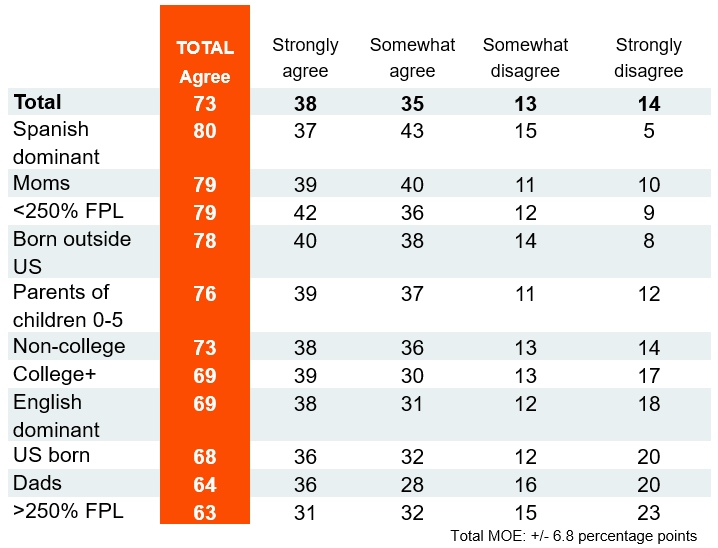
This study includes equal representation of parents and caregivers from five different racial and ethnic backgrounds; Latino, as well as Asian American and Pacific Islander, Black, Indigenous, and White. Explore detailed reports of the survey findings for each group here.
Asian American and Pacific Islander parents and caregivers report themes of optimism, independence, and self-determination.
Black parents’ and caregivers’ experience raising children is one that is marked by optimism while facing long-standing, systemic barriers to thrive.
Indigenous parents and caregivers surveyed paint an interesting picture—a dichotomy that reflects a complex and complicated reality of their nations and communities in America.
White parents and caregivers report themes of optimism, but they worry about their children's mental health and don't see the same opportunities to succeed for all children.
“Raising the Next Generation: A Survey of Parents and Caregivers” examines what it is like to raise children in America today, by asking questions to equal numbers of parents and caregivers from five different racial and ethnic groups: Asian American and Pacific Islander, Black, Indigenous, Latino, and White. The survey builds on interviews and focus groups conducted over an 18-month period in 16 cities and in seven different languages with parents and caregivers from more than a dozen racial, ethnic, or cultural backgrounds. The survey and qualitative research were conducted by the nonpartisan research firm PerryUndem and a broad set of partners with culturally specific expertise.